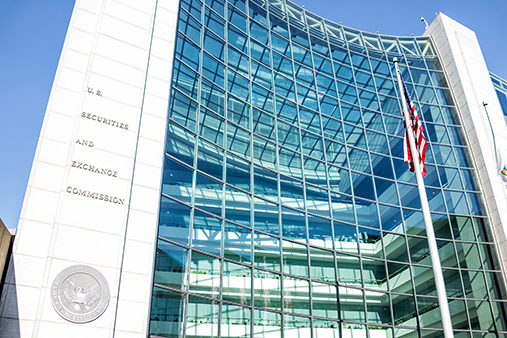On June 25, 2013, the Senate Appropriations Subcommittee on Transportation, Housing, and Urban Development, and Related Agencies approved Appropriations Bill S. 1243 for FY 2014, which includes increased funding for the Pipeline and Hazardous Materials Safety Administration (PHMSA), among other appropriations.
While the Senate Appropriations Bill does not itself impose any new regulations, the budgetary increase is expected to fund new PHMSA initiatives. In particular, PHMSA intends to develop a new civil penalties rulemaking under the Pipeline Safety, Regulatory Certainty, and Job Creation Act, and to develop new studies and standards for safety as explained in more detail below.
A Subcommittee press release stated $246 million (96.4 percent of requested funds) had been allocated to PHMSA to support pipeline and hazardous materials safety programs. The Subcommittee further stated these new funds, which represent a 12.2 percent increase over FY 2013, will improve PHMSA’s ability to “ensure the safety of the 2.6 million miles of privately owned and operated pipeline infrastructure and the transportation of more than 800,000 daily shipments of hazardous materials across the nation.”
The Bill would distribute funding to PHMSA as follows:
- Pipeline Safety (conducts risk assessments, performs data analysis, conducts safety inspection and investigations, and makes grants to support state pipeline safety programs, outreach, training, and research.)
- $151,427,000 (97.6 percent of requested funds)
- Administration Operational Expenses:
- $21,654,000 (107.2 percent of requested funds)
- Hazardous Materials Safety (sets standards and requirements for the safe transportation of hazardous materials.)
- $45,000,000 (86.9 percent of requested funds)
- Emergency Preparedness Grants (provides Federal financial and technical assistance to states, territories, and American Indian tribes to develop, improve, and carry out emergency plans within the National Response System and Emergency Planning and Community Right-To-Know Act.)
- $28,318,000 (100.1 percent of requested funds)
In their budget estimate, PHMSA described how they plan to use the new FY 2014 funding for the various programs described below.
The Pipeline Safety Program plans to use the increased 2014 funding to:
- Provide more robust inspection and enforcement oversight to the pipeline system
- Ensure standardization among all State pipeline safety programs
- Amend its project evaluation and decision process so there is reduced industry participation to ensure greater separation between the regulator and the regulated industry
- Develop the National Pipeline Information Exchange
- Increase public awareness
- Maintain 90 percent enforcement case overall closure rate
- Improve integrity management oversight and possibly revise regulations based on a decade of lessons learned
- These funds will also be used to create new studies and rules as designated by the Pipeline Safety, Regulatory Certainty, and Job Creation Act of 2011. The key provisions include:
- Increasing the maximum civil penalties ceiling for violations of the Federal pipeline safety standards from $100,000 to $200,000 for each violation, and from $1 million to $2 million for a related series of violations
- Calling for new detailed studies on safety valves, leak detection, implications of expanding “high consequence area” definitions, risk of gathering lines, cast iron pipe replacement, and implications of current exemptions from excavation damage prevention laws
- Requiring new pipeline safety standards for expansion of integrity management rules (after Congressional review), accident reporting, use of excess flow valves, and confirmation of safe operating pressure levels
- Establishing new standards for state damage prevention programs to qualify for Federal grants, including effective enforcement by the states and participation by all underground facility operators and excavators
- Authorizing the Department to be reimbursed for costs it incurs in conducting the facility design safety reviews
The Hazardous Materials Safety program plans to use the new 2014 funding to:
- Address newly emerging safety, efficiency, and economic competitiveness issues
- Continue the incorporation of special permits into Hazardous Materials Regulations
- Partially deploy the Risk Management Framework and begin producing sophisticated models of incidents’ causes and effects
The Emergency Preparedness Grants program plans to use the increased 2014 funding to:
- Increase outreach to raise tribal awareness of the grant program,
- Launch a new interactive training module; and
- Implement progress reports for grantees.
A copy of the Bill is available at http://www.gpo.gov/fdsys/pkg/BILLS-113s1243pcs/pdf/BILLS-113s1243pcs.pdf.
The Subcommittee’s June 27, 2013 Press Release outlining the Appropriations Bill for FY 2014 is available at http://www.appropriations.senate.gov/news.cfm?method=news.view&id=2094c257-e850-4bbe-a15f-cadff65a51e3
PHMSA’s Budget Estimate is available at http://www.dot.gov/sites/dot.dev/files/docs/PHMSA_FY2014_Budget_Estimates.pdf
Barnes & Thornburg’s Pipeline Practice Team is continuing to monitor PHMSA’s budget increase.
For more information, contact Paul Drucker, leader of Barnes & Thornburg’s Pipeline Practice Team at paul.drucker@btlaw.com or 312-214-8806; or one of the following Pipeline Practice Team members, Michael Elam at michael.elam@btlaw.com or 312-214-5630.
About Barnes & Thornburg LLP’s Pipeline Practice
Owners, operators, developers and users of natural gas, petroleum, product and other pipelines turn to the multi-disciplinary Barnes & Thornburg pipeline practice team for skilled legal representation in this highly regulated industry.
Barnes & Thornburg’s attorneys have experience advising major pipeline operators on compliance with federal and state regulations across the United States and do so with a practical, business-oriented approach. We are also called upon to represent pipeline operators during release incidents and resulting governmental investigations and enforcement actions.
Visit us online at http://www.btlaw.com/pipeline-practices/.
© 2013 Barnes & Thornburg LLP. All Rights Reserved. This page, and all information on it, is proprietary and the property of Barnes & Thornburg LLP. It may not be reproduced, in any form, without the express written consent of Barnes & Thornburg LLP.
This Barnes & Thornburg LLP publication should not be construed as legal advice or legal opinion on any specific facts or circumstances. The contents are intended for general informational purposes only, and you are urged to consult your own lawyer on any specific legal questions you may have concerning your situation.











/Passle/6488d4630e7e25c9ac9f834a/SearchServiceImages/2024-08-22-21-09-42-814-66c7a9167c25ae3ecd362787.jpg)

/Passle/6488d4630e7e25c9ac9f834a/SearchServiceImages/2024-08-21-16-53-04-583-66c61b702c11c56cda8987a4.jpg)
